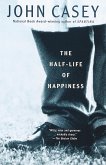In "Senescence, the Last Half of Life," G. Stanley Hall presents a pioneering exploration of aging, focusing on the psychological and social dimensions of the latter stages of life. His literary style interweaves empirical observation with rich anecdotal evidence, offering a comprehensive perspective on the experiences of aging individuals. Hall contextualizes his work within the burgeoning field of gerontology in the early 20th century, drawing from contemporary psychological theories while also addressing the societal attitudes toward the elderly. This seminal work lays the groundwork for understanding the complexities of human development as one navigates through the evolving challenges and opportunities of senescence. G. Stanley Hall, a prominent American psychologist and educator, is often heralded as one of the founders of developmental psychology. His extensive academic background, including his pioneering studies on adolescence, cultivated a profound interest in the entire human lifespan, prompting him to reflect on the later phases of life. Hall's engagement with the psychological intricacies of age, as well as his societal perspectives, reflects a lifetime commitment to understanding human growth-a theme that permeates his scholarly oeuvre. This book is essential for anyone interested in the psychology of aging, social issues, or educational practices surrounding the elderly. With its insightful analysis and rich historical context, Hall's work invites readers to reconsider cultural narratives surrounding aging, making it a valuable resource for educators, psychologists, and general readers alike.
Dieser Download kann aus rechtlichen Gründen nur mit Rechnungsadresse in A, B, BG, CY, CZ, D, DK, EW, E, FIN, F, GR, HR, H, IRL, I, LT, L, LR, M, NL, PL, P, R, S, SLO, SK ausgeliefert werden.









